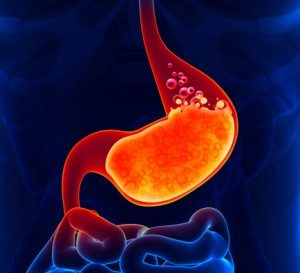 There are several conditions that can turn a healthy stomach into an unhealthy one. Burning sensation in the stomach, excessive stomach acid, stomach pains after eating, stomach spasms, dyspepsia, and abdominal muscle spasms are just some of the problems that may occur. Living with an upset stomach can be very uncomfortable, but you’re probably not alone if you suffer from any of the listed ailments. And like everyone else who lives with stomach discomfort, you probably spend your days looking up remedies for an upset stomach. You don’t need to browse the internet for countless hours, as we have compiled together our top articles regarding stomach problems.
There are several conditions that can turn a healthy stomach into an unhealthy one. Burning sensation in the stomach, excessive stomach acid, stomach pains after eating, stomach spasms, dyspepsia, and abdominal muscle spasms are just some of the problems that may occur. Living with an upset stomach can be very uncomfortable, but you’re probably not alone if you suffer from any of the listed ailments. And like everyone else who lives with stomach discomfort, you probably spend your days looking up remedies for an upset stomach. You don’t need to browse the internet for countless hours, as we have compiled together our top articles regarding stomach problems.
Stomach problems can encompass a slew of digestive problems. Some stomach or digestive problems may be acute and temporary, while others are chronic and must be managed throughout your life. Without proper treatment, an acute problem may become chronic or a chronic issue may worsen over the years. This is why it’s important that you seek out medical attention to get to the bottom of your issues.
Advertisement
Over 34 million Americans live with digestive problems, and if you’re one of them, you will definitely want to peruse the below articles to help you get back to a healthy stomach.
Burning Sensation in Stomach: Causes, Symptoms and Home Remedies
A burning stomach, or a burning sensation in the stomach, can cause pain, fatigue, and stress to the stomach. Burning stomach is becoming a growing and common problem as a result of indigestible food, health problems, infections, overuse of antibiotics, and chlorinated water, to name a few causes.
The stomach is a muscular sack between the esophagus and small intestine. The stomach is responsible for digesting food before it enters the intestines to be broken down further. If food is not properly broken down in the stomach, it can cause a clog along the intestines, resulting in indigestion or heartburn. Continue reading…
 What causes excessive stomach acid and how to get rid of it
What causes excessive stomach acid and how to get rid of it
Excessive stomach acid can be uncomfortable to live with, and while in many cases it is a minor nuisance, it can lead to serious health problems when not treated.
Stomach acid is important to the digestive system. It helps us process food and it kills harmful bacteria. The stomach makes the hormone called gastrin, which creates hydrochloric acid. When these acid levels increase, it can lead to hyperacidity. Excess stomach acid can range from mild to severe.
Our diet, environment, and even stress can be contributing factors to excessive stomach acid. There are, in fact, relatively simple ways to reduce excess stomach acid or prevent it altogether. Continue reading…
 20 home remedies for upset stomach (dyspepsia)
20 home remedies for upset stomach (dyspepsia)
Dyspepsia—indigestion and upset stomach—is a condition that describes pain or discomfort in the stomach region. A slew of symptoms can be experienced in dyspepsia, including nausea, bloating, and burping, to name a few.
There are many causes of an upset stomach, including eating too much, eating too fast, consuming fatty or greasy foods, eating spicy food, having too much caffeine, consuming fizzy beverages, nervousness, and even smoking. The list is actually quite long.
An upset stomach can be quite troubling, especially if you are out and about. You feel sick, uncomfortable, your pants seem to have shrunk instantly, and all you ready want to do is be home. Instead of being miserable and falling victim to your upset stomach, try some of these home remedies that can help relieve you of your woes. Continue reading…
 Stomach pain after eating – causes and home remedies
Stomach pain after eating – causes and home remedies
Nothing is worse than enjoying a meal that is immediately followed up by stomach pains. Stomach pains after eating can be a nuisance, especially if you don’t know the underlying cause. There are numerous causes for stomach pains after eating, and many of them require a simple solution. It’s important to determine the underlying cause of your stomach pain after eating, so you can take the necessary steps to reduce the pain and enjoy your meals once again.
Advertisement
Here we will explain the many causes of stomach pain after eating, along with home remedies you can try in order to reduce your post-meal discomfort. Continue reading…
 Stomach spasms: Causes and symptoms
Stomach spasms: Causes and symptoms
Stomach spasms (abdominal muscle spasms) are involuntary contractions of the abdomen. During a stomach spasm, the muscle feels rigid and tense, and your stomach may feel tender to touch. Majority of spasms occur in the deepest layer of the stomach muscles that stabilize your trunk.
There are a variety of reasons for muscle spasms. Understanding your cause of stomach spasms can help you prevent them and treat them more efficiently. Continue reading…
